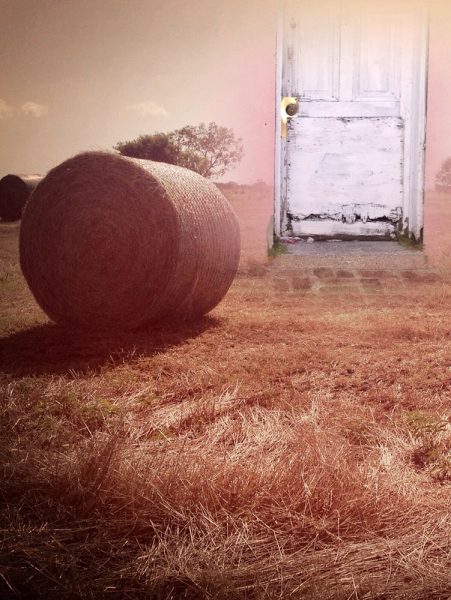“Nightstands” really lends itself to being read and re-read. Its narrator is having an impossible time coming to terms with his wife’s permanent absence. There’s something so recognizable and human here, the rawest and most agonizing sort of longing. What made you want to articulate this experience at all, much less in the gut-wrenching way you succeeded at capturing it?
When I began working on this piece about a year ago, it began with the image of a grandmother’s ashes in a jar in the kitchen cupboard. And there was a whole story built around it, how that experience affected this boy as he grew up. I spent a lot of time tinkering, rewriting, scrapping, cutting and pasting images and metaphors, trying sentences in different places but nothing was jumping out to me—I wasn’t sure what it was I was trying to say. Initially this scene, which is now the entirety of the piece, was only two sentences long. But it always felt unfinished, like there was something missing, something so obvious that I was leaving out. It wasn’t until Tara suggested shedding the dead weight of the story that I realized it wasn’t something that was missing, but that there was too much already: The story was right there the whole time, all that needed and wanted to be said in that paragraph.
My mother was diagnosed with cancer in late 2014 and it rightfully shook my family. It was a shock I never knew how deal with. My mom is a strong woman and she was never going to let the cancer beat her or slow her down; she was back to work within weeks of her surgery. But it wasn’t until after the cancer was entirely in remission that I let the shock emerge in my writing. That’s where this piece really grew from, I think, from my attempts to reconcile my inability to cope with the shock of her diagnosis. She is such an incredible inspiration (and she is most certainly crying as she reads this) and I love her more than I could ever express, but I hope she knows that I’m trying.
I think you’ve made two really interesting comments here, the first being about craft and the second being about those times when something tests a relationship or challenges one’s perception of the normal way things must go. The latter idea is painted nicely in your story, how the narrator is unable to put his loss in terms of the present reality. What do you think it is about our close ties to other people that leads to such powerful revelations?
I think those powerful revelations are a natural byproduct of spending time with someone, and not only understanding them on a deeply personal level, but also from their understanding of you (an understanding often more accurate than our own self-image). It’s not just about what you discover about yourself or about the world, but it always seems so much more intense or important because of the situation or environment that brought on that discovery. In writing workshops, the one thing that is parroted more often than Show, don’t tell is Write what you know. And for the longest time I didn’t understand what that really meant. But I’ve come to understand that the magical power of fiction is that I’m able to talk about things that I’ve experienced in ways I haven’t—or from the perspectives of people I’m not. It gives me the space to work through all the noise in my head and sometimes, as it has here, it turns into a story.
What do you make of this noise, the flood of the stream of consciousness? For what purpose are human beings meant to create their own narratives, spinning them into fictions? Why make a record of the noise at all?
For me, it’s just a way to process all my thoughts and emotions. I’ve always had a hyperactive imagination, but I feel lucky I found writing as an outlet at a young age. It’s come through in various forms over the years: poetry and lyrics and now fiction. I often find myself waking up with a sentence fragment or an idea for a character and I’m unable to focus on anything else until I write it down. So I guess it’s just a coping mechanism, really, or else I wouldn’t be able to accomplish anything.



 The core workshop of SmokeLong Fitness is all in writing, so you can take part from anywhere at anytime. We are excited about creating a supportive, consistent and structured environment for flash writers to work on their craft in a community. We are thrilled and proud to say that our workshop participants have won, placed, or been listed in every major flash competition. Community works.
The core workshop of SmokeLong Fitness is all in writing, so you can take part from anywhere at anytime. We are excited about creating a supportive, consistent and structured environment for flash writers to work on their craft in a community. We are thrilled and proud to say that our workshop participants have won, placed, or been listed in every major flash competition. Community works.